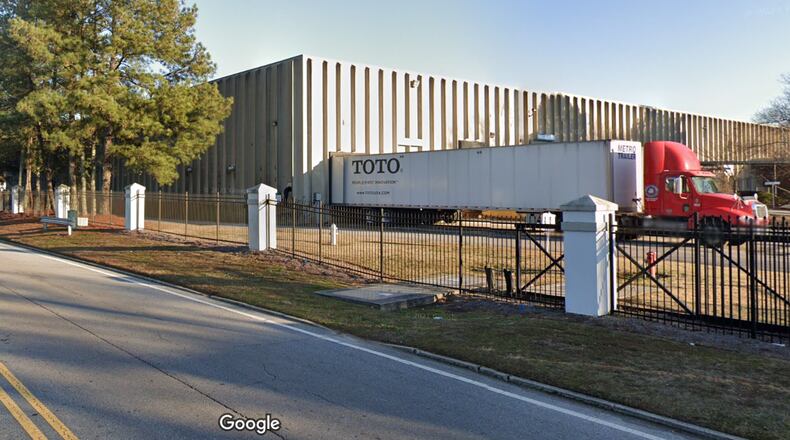A Clayton County agency has granted what is likely to be several million dollars in property tax savings to an international maker of bathroom fixtures to expand its factory south of Atlanta.
But the agency did not disclose how much in property tax savings it offered for a project the company says will not create any new jobs.
The Development Authority of Clayton County announced last month it approved an incentive package for the U.S. division of Japan-based Toto to expand its existing plant at 1155 Southern Rd. near Morrow. As part of the $238 million expansion, the company said it will retain 300 current employees at a higher average salary, but no additional workers are expected to be hired.
Toto, the world’s largest manufacturer of bathroom fixtures and fittings, has operated its American headquarters in Clayton County since 1996.
“This momentous deal with Toto USA is only the beginning,” the authority’s executive director, C. Harrison Braddy, said in a news release, “and goes to show that with new progressive leadership and a cohesive development authority, we decided to rebrand, reunite and cultivate unprecedented economic growth.”
The authority declined to disclose the estimated property tax savings that Toto is expected to receive during a 10-year abatement period despite multiple requests from The Atlanta Journal-Constitution. Invest Atlanta and the Development Authority of Fulton County, among others, routinely release estimates showing the value of incentive awards to companies.
“The people of Clayton County deserve to know when their government leaders are giving away tax breaks to companies,” said Richard T. Griffiths, a former CNN executive and Georgia First Amendment Foundation board member. “They may well be great investments for the taxpayers, but they deserve to know the exact terms.”
Deal documents from the Clayton authority obtained by the AJC through the Georgia Open Records Act did not specify the amount of tax savings. But the documents show Toto will pay reduced property taxes starting in 2026 and lasting through 2035.
Toto will receive a 50% property tax reduction in year one with the amount of taxes gradually increasing each year until the company will be assessed the full tax amount in 2036. According to estimates calculated by the AJC, Toto could receive about $9.2 million in savings over 10 years. The authority also earns a fee for brokering such transactions.
Credit: Courtesy Toto USA
Credit: Courtesy Toto USA
In 2023, Toto paid about $176,000 in property taxes for its factory and surrounding 15-acre site, according to county property tax records. Even with the tax savings, the amount of money Clayton will receive in property taxes will go up during the life of the incentive agreement.
The company declined to comment for this article.
Carol Yancey, a lifelong Clayton resident, said companies need to pay their fair share of the tax burden, especially since the county is considering increasing its millage rate by 2.5 mills, which would impact personal property taxes.
“We need some relief,” she said, “because right now, it’s the citizens that are dealing with all the financial burdens.”
Complex agreements
A property tax break offered to a company that is expanding but not creating any new permanent jobs is unusual but not unheard of. Earlier this year, the Fulton authority approved a $10.1 million tax break for a controversial data center expansion by the social media platform X that was already underway and will not result in new jobs.
Both the Clayton and Fulton authorities granted the incentives under a program often called “bond-for-title” deals or “phantom bonds” or “lease-purchase” agreements. This type of incentive is commonplace — albeit complicated and controversial — across Georgia.
The state Constitution forbids government entities from providing a good, service or property without an equitable return, so this incentive was developed as a legal workaround. It often involves bonds that aren’t really real, leases that don’t act like typical leases and a government body holding title to a project that they often don’t really own.
Development authorities have the power to enter into these agreements to attract corporate investment, but critics argue these nonelected boards can lack transparency and offer large tax savings to projects that would be built anyway.
Toto officials said in a March meeting of the Clayton authority that the expansion will boost its production capacity to 300,000 units per year, a 50% increase. Average nonmanagement salaries are expected to increase to $70,000 from $56,000, according to a presentation during the meeting.
About the Author
Keep Reading
The Latest
Featured




